商务英语翻译理论与实践(第一章:翻译概论)
- 格式:ppt
- 大小:40.50 KB
- 文档页数:10
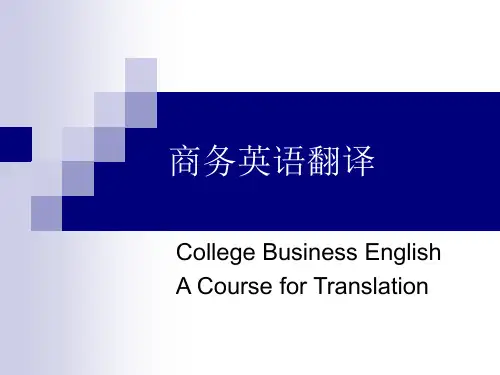
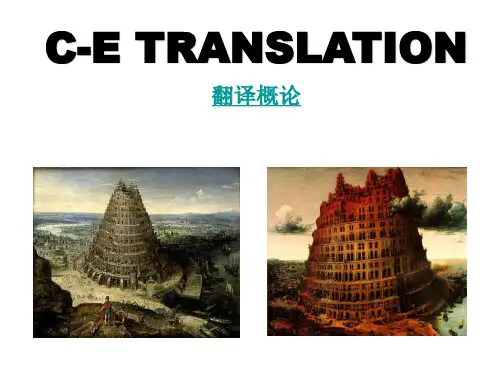
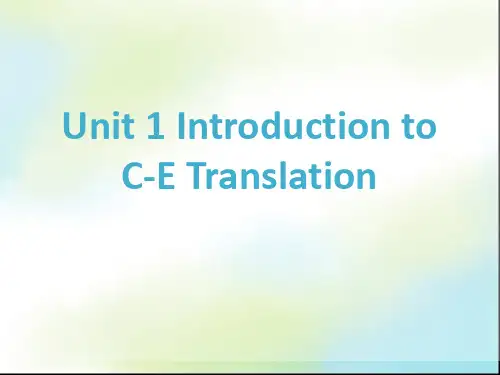
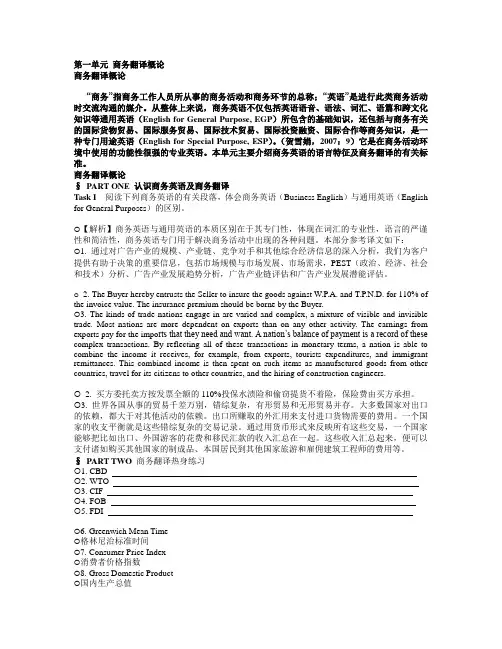
第一单元商务翻译概论商务翻译概论“商务”指商务工作人员所从事的商务活动和商务环节的总称;“英语”是进行此类商务活动时交流沟通的媒介。
从整体上来说,商务英语不仅包括英语语音、语法、词汇、语篇和跨文化知识等通用英语(English for General Purpose, EGP)所包含的基础知识,还包括与商务有关的国际货物贸易、国际服务贸易、国际技术贸易、国际投资融资、国际合作等商务知识,是一种专门用途英语(English for Special Purpose, ESP)。
(贺雪娟,2007:9)它是在商务活动环境中使用的功能性很强的专业英语。
本单元主要介绍商务英语的语言特征及商务翻译的有关标准。
商务翻译概论§PART ONE 认识商务英语及商务翻译Task I阅读下列商务英语的有关段落,体会商务英语(Business English)与通用英语(English for General Purposes)的区别。
【解析】商务英语与通用英语的本质区别在于其专门性,体现在词汇的专业性,语言的严谨性和简洁性,商务英语专门用于解决商务活动中出现的各种问题。
本部分参考译文如下:1. 通过对广告产业的规模、产业链、竞争对手和其他综合经济信息的深入分析,我们为客户提供有助于决策的重要信息,包括市场规模与市场发展、市场需求,PEST(政治、经济、社会和技术)分析、广告产业发展趋势分析,广告产业链评估和广告产业发展潜能评估。
2. The Buyer hereby entrusts the Seller to insure the goods against W.P.A. and T.P.N.D. for 110% of the invoice value. The insurance premium should be borne by the Buyer.3. The kinds of trade nations engage in are varied and complex, a mixture of visible and invisible trade. Most nations are more dependent on exports than on any other activity. The earnings from exports pay for the impo rts that they need and want. A nation’s balance of payment is a record of these complex transactions. By reflecting all of these transactions in monetary terms, a nation is able to combine the income it receives, for example, from exports, tourists expenditures, and immigrant remittances. This combined income is then spent on such items as manufactured goods from other countries, travel for its citizens to other countries, and the hiring of construction engineers.2. 买方委托卖方按发票全额的110%投保水渍险和偷窃提货不着险,保险费由买方承担。

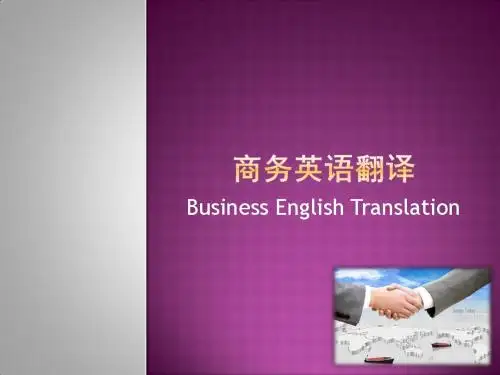
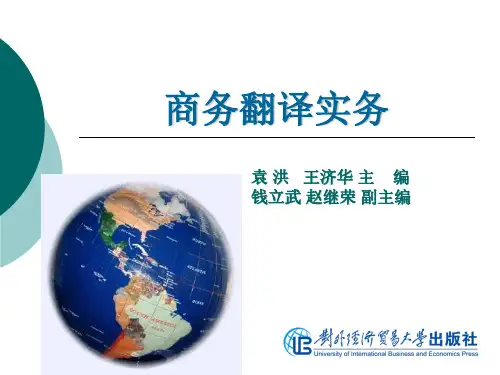

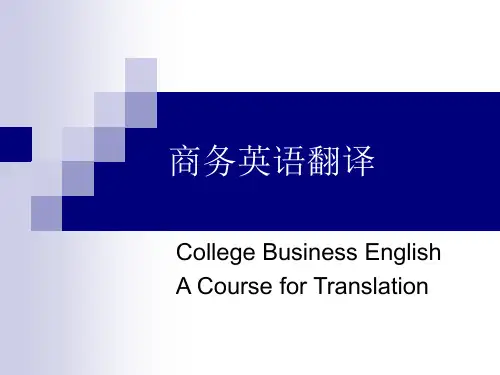
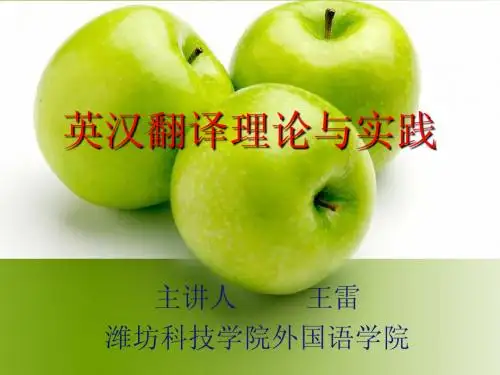
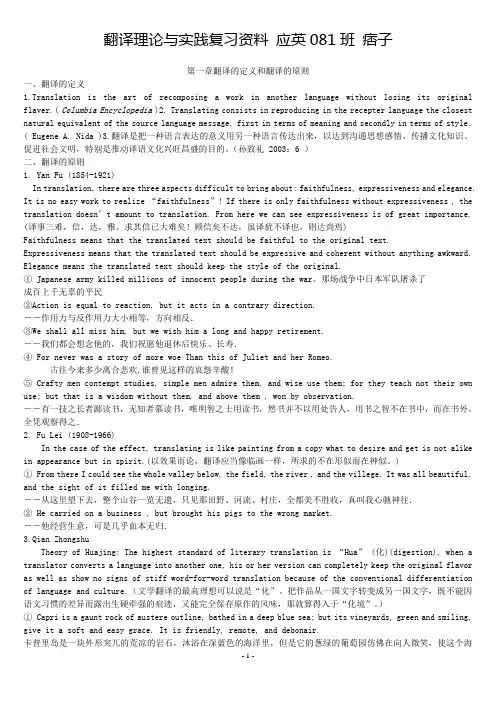
翻译理论与实践复习资料应英081班痞子第一章翻译的定义和翻译的原则一、翻译的定义1.Translation is the art of recomposing a work in another language without losing its original flaver.( Columbia Encyclopedia)2. Translating consists in reproducing in the recepter language the closest natural equivalent of the source language message, first in terms of meaning and secondly in terms of style. ( Eugene A. Nida )3.翻译是把一种语言表达的意义用另一种语言传达出来,以达到沟通思想感情、传播文化知识、促进社会文明,特别是推动译语文化兴旺昌盛的目的。
(孙致礼 2003:6 )二、翻译的原则1. Yan Fu (1854-1921)In translation, there are three aspects difficult to bring about: faithfulness, expressiveness and elegance. It is no easy work to realize “faithfulness”! If there is only faithfulness without expressiveness , the translation doesn’t amount to translation. From here we can see expressiveness is of great importance. (译事三难,信,达,雅。
求其信已大难矣!顾信矣不达,虽译犹不译也,则达尚焉)Faithfulness means that the translated text should be faithful to the original text.Expressiveness means that the translated text should be expressive and coherent without anything awkward. Elegance means the translated text should keep the style of the original.① Japanese army killed millions of innocent people during the war。